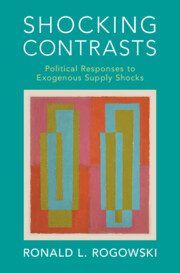Why do different industrial democracies employ different processes in determining trade policy and different models of capitalism? Two variables account for the nature of the decision-making process for trade policy. First, the level of inter-industry factor mobility determines if class or sectoral coalitions predominate. Second, the size of policy coalitions depends on which branch of government dominates trade policy. Legislatures favor minimum winning coalitions, while executives favor maximal coalitions. These two variables condition different patterns of coalition making: partisan, pluralist, corporatist, and interventionist. I illustrate this theory analyzing the development of policymaking concerning trade in France and Sweden.
